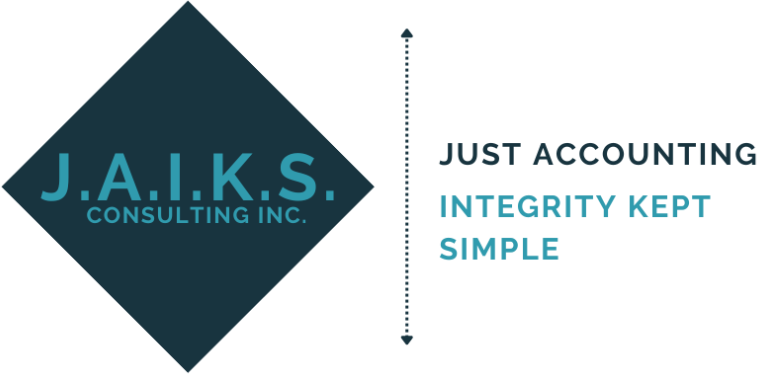J.A.I.K.S. BLOG
Welcome to J.A.I.K.S. Blog, a place where we will provide you with a variety of resources on accounting, taxation and other related subjects suited for both individuals and/or their businesses.
We hope you can find the answers to your questions and/or curiosities, and always know we are here to help if you need more.
Follow us on Facebook or find us on LinkedIn - we are always eager to give you more!
Disclaimer:
The content provided in this blog is for general informational purposes only and is not intended as professional accounting, tax, or financial advice. While efforts are made to ensure the accuracy and timeliness of the content, errors or omissions may occur. The content does not constitute a client-advisor relationship. Readers should consult with a Chartered Professional Accountants or other financial professional for advice tailored to their specific needs. We are not liable for any actions one might take based on the information provided in this blog.
2 minutes reading time
(402 words)
Could Selling Goods Online be Taxable Income?
In Canada, income from selling goods on eBay, or similar platforms such as Kijiji, Etsy, or Amazon, can be taxable, depending on the nature and frequency of the sales. Here are the key factors to consider:
- Business vs. Hobby: If you are selling goods occasionally, such as selling personal items that you no longer need, this is typically considered a hobby. Income from hobbies is generally not taxable. Selling your collection of hockey cards and/or coins is a good example of a hobby turned income, however if you are buying items with the intention of reselling them at a profit, or if you are regularly selling goods on eBay, this activity may be considered a business by the Canada Revenue Agency (CRA).
- Frequency and Profit Motive: If your sales are frequent and you are actively seeking to make a profit, the CRA is more likely to consider your activities as a business. This includes activities like purchasing items specifically to resell, maintaining an inventory, or using business-like strategies to increase sales.
- Record Keeping: Regardless of whether your sales are considered a business or not, it's important to keep detailed records of all transactions. This includes the date of sale, description of the item, the cost to you of the item, sale price, and expenses related to the sale (such as shipping costs).
- Declaring Income: If your sales are deemed a business, you need to report this income on your tax return. You will need to complete a statement of business activities (Form T2125) and include it with your tax return. Business income is subject to income tax, and you may also need to remit GST/HST if your total taxable supplies exceed the small supplier threshold of $30,000 over four consecutive calendar quarters.
- Expenses: If your eBay sales are considered a business, you can deduct reasonable business expenses from your income. This includes costs like eBay fees, PayPal fees, shipping supplies, and other expenses directly related to your sales activities.
- Capital Gains: If you sell personal items occasionally, any gains might be considered capital gains. However, personal-use property is generally exempt from capital gains tax if the proceeds of disposition are $1,000 or less.
If you are unsure whether your eBay sales constitute a business or if you need to report this income, it's advisable to talk to our office. You can also refer to CRA guidelines for more detailed information.
Stay Informed
When you subscribe to the blog, we will send you an e-mail when there are new updates on the site so you wouldn't miss them.


Comments